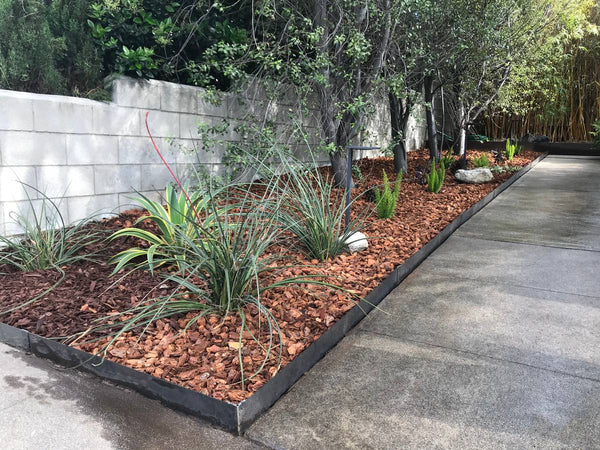When it comes to landscaping, one of the most crucial decisions you'll make is choosing the type of bed you want to establish around your home. Sunken beds and raised beds are two popular options, each with its unique advantages and considerations.
Sunken Beds: Going Beneath the Surface
Cons of Sunken Beds:
- Maintenance Challenges: Over time, sunken beds can become maintenance nightmares. As soil levels naturally rise, you'll need to continually remove dirt to maintain the desired depth.
- Trip Hazard: Sunken beds can pose a tripping hazard, particularly in high-traffic areas. In contrast, raised beds act as barriers, helping prevent accidental missteps.
-
Reduced Curb Appeal: Sunken beds may have reduced curb appeal due to their lower elevation, making them harder to visualize in your garden's design.
-
Water Dispersion Issues: Sunken beds may experience reduced water dispersion, causing water to pool in low spots, potentially overwatering some areas while leaving others dry.
-
Flooding Concerns: During heavy rains, sunken beds can experience issues with water and mulch flooding onto adjacent sidewalks and driveways, creating a messy and potentially hazardous situation
Pros of Sunken Beds:
- Soil Integration: Sunken beds naturally integrate with the native soil, which can be advantageous if and only if the surrounding soil is already suitable for gardening.
- Potential Wind Protection: The lowered profile of sunken beds may offer some protection from strong winds. This can be beneficial for low profile delicate plants that might be vulnerable to wind damage.
Raised Beds: Elevating Your Gardening Experience
Pros of Raised Beds:
- Superior Drainage: One of the standout benefits of raised beds is their excellent drainage. Elevated above the ground, they allow excess water to flow away, preventing waterlogged soil and root rot. This makes raised beds ideal for regions with heavy rainfall.
- Customizable Soil Quality: With raised beds, you have complete control over your soil composition. You can select and amend the soil to meet your specific plant requirements. This customization ensures optimal growing conditions for your plants from day one.
- Accessibility: Raised beds offer easy access to your plants. There's less bending or kneeling required, making gardening more comfortable, especially for those with mobility issues. Additionally, the raised design acts as a natural barrier, deterring pests like rabbits and groundhogs.
- Extended Growing Season: The elevated soil in raised beds warms up faster in the spring, allowing for earlier planting and an extended growing season. You can also cover raised beds more easily, providing frost protection and further lengthening the season.
- Aesthetic Appeal: Raised beds can enhance the visual appeal of your garden. Their tidy, organized appearance can create a deliberate and attractive landscape design
Cons of Raised Beds:
- Cost: Building or buying materials for raised garden beds can be expensive. You'll need lumber, screws, nails, or other construction materials. Additionally, you might want to line the beds with landscape fabric or install a weed barrier, which adds to the cost. While the initial investment can be high, proponents argue that the long-term benefits often outweigh this drawback.

Despite the con, most home owners find that the benefits of raised beds, such as less maintance, better drainage, improved soil quality, and curb appeal outweigh the drawback of initial price. The decision to use raised beds ultimately depends on your specific landscaping goals and circumstances.
